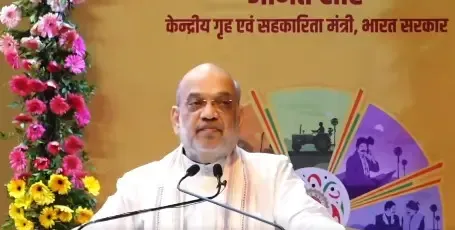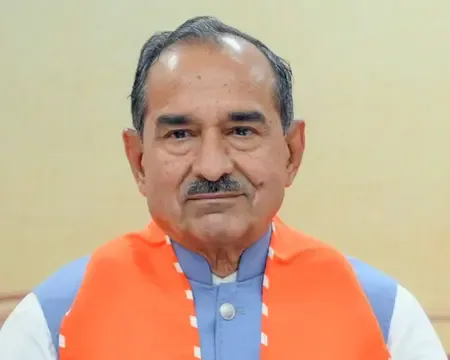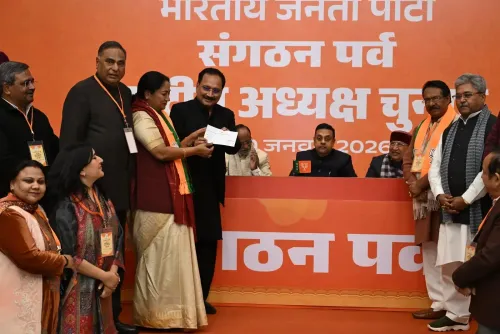Enhance Milk Cooperative Reach to 50% Villages, HM Shah Urges MP Government

Synopsis
Key Takeaways
- Union Minister Amit Shah emphasizes revitalizing cooperative systems in Madhya Pradesh.
- 50% of villages should establish functional milk cooperatives.
- Collaboration with NDDB aims to increase cooperative coverage to 83%.
- Madhya Pradesh produces 3.3 crore litres of milk daily.
- Central Government promises support for cooperative enhancement.
Bhopal, April 13 (NationPress) Union Minister of Home Affairs and Cooperation, Amit Shah, has urged the Madhya Pradesh government to revitalize the inactive cooperative systems that were overlooked during the prior Congress administration.
Speaking in Bhopal on Sunday, he emphasized the necessity for at least 50 percent of the villages in the state to establish operational milk cooperatives. With great enthusiasm, Union Minister Shah praised the state’s collaboration with the National Dairy Development Board (NDDB), initiated on Sunday to enhance milk cooperative networks and transform the dairy sector.
During his address, HM Shah expressed sorrow over the fact that while Madhya Pradesh produces 3.3 crore litres of milk daily, only 17 percent of villages have access to cooperative milk collection services. He noted, with concern, that a scant 2.5 percent of this milk reaches cooperatives.
The recent partnership between Madhya Pradesh and NDDB has created promising prospects for extending cooperative coverage to 83 percent of villages, thereby unlocking unutilized potential. Despite the urban milk requirement of 1.20 crore litres daily, farmers have not yet enjoyed fair profits — a situation the agreement aims to address in the next five years by focusing on establishing cooperatives in half of the state's villages.
The Union Home Minister highlighted the significance of increasing the current 7,000 rural milk cooperatives, which require substantial improvement to enhance their outreach and efficiency. He promised steadfast support from the Central Government to assist Madhya Pradesh in this transformational endeavor.
Furthermore, HM Shah regarded this moment as a prime opportunity to revitalize defunct cooperatives from earlier administrations, setting ambitious objectives to boost milk production, especially through processed dairy products like cheese and paneer. He criticized past Congress governments, which witnessed stagnation in cooperative movements plagued by administrative neglect and ineffective systems.
“For decades, legal reforms were overlooked, leaving the cooperative sector struggling without adequate institutional backing. It was only under the leadership of the Modi government that the Ministry of Cooperation was established, seventy-five years after Independence, paving the way for groundbreaking reforms such as model bylaws. The nationwide implementation of these bylaws has revitalized primary cooperative societies. Today, these societies — once restricted to offering short-term agricultural loans — have diversified their services, including managing medical facilities, petrol stations, railway ticketing, and electricity bill payments,” the Home Minister stated.
Madhya Pradesh is at the forefront of computerizing Primary Agriculture Credit Societies (PACS), linking them to NABARD and other entities, promoting inclusive growth across linguistic and cultural boundaries.
As the state embarks on this ambitious venture on Sunday by signing the agreement with NDDB, Chief Minister Mohan Yadav proclaimed the state's commitment to double milk processing capacity within five years, thus empowering dairy farmers and fortifying their cooperatives.
The Chief Minister mentioned that the Madhya Pradesh Cabinet has already sanctioned the agreement, which will initially span five years, with the option for extension based on mutual agreement. This collaboration with NDDB, backed by a budget allocation of Rs 1,447 crore, signifies a new beginning for the dairy sector — a mission aimed at enhancing farmers' livelihoods and ushering in an era of prosperity.










